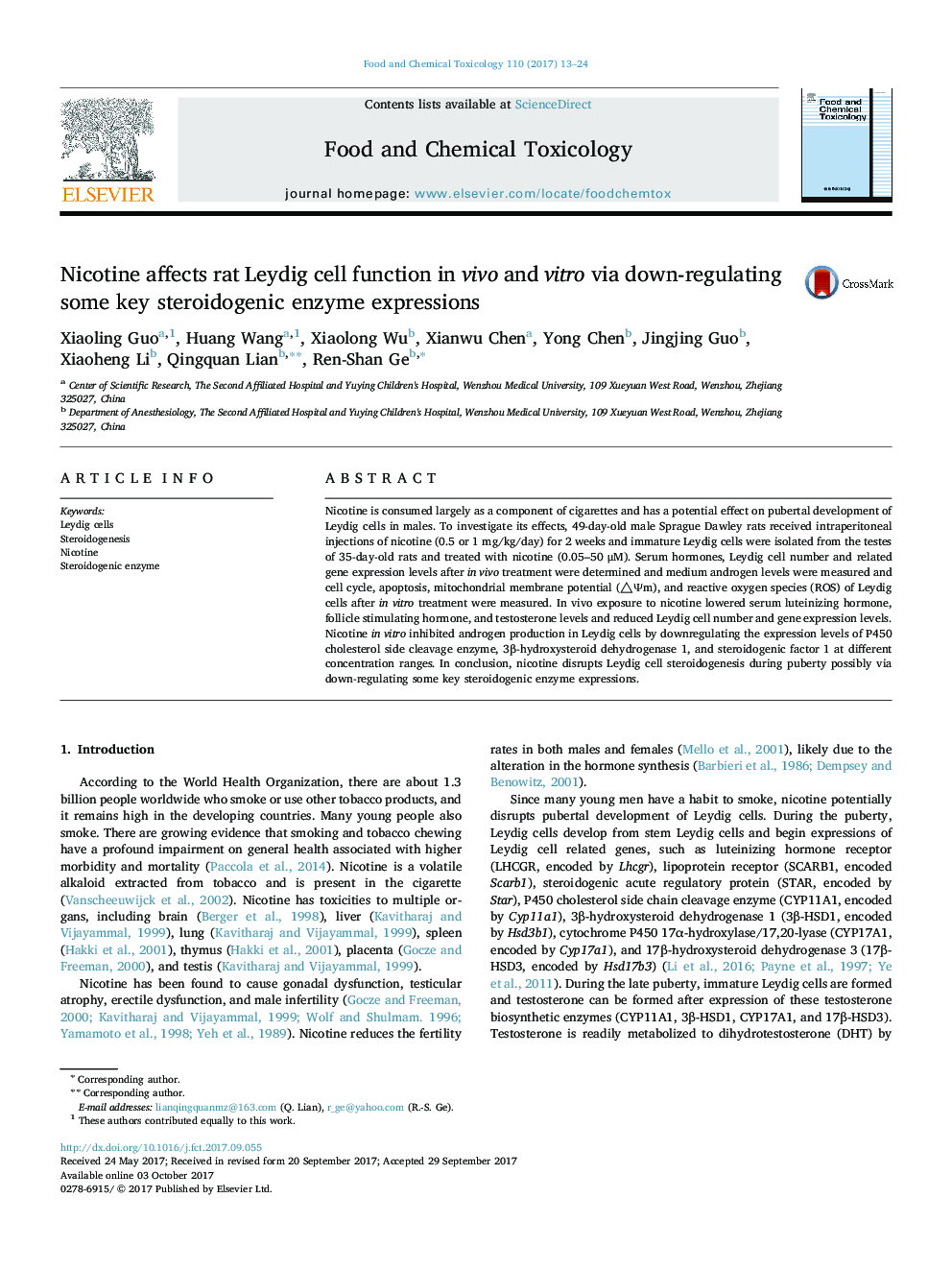| Article ID | Journal | Published Year | Pages | File Type |
|---|---|---|---|---|
| 5559926 | Food and Chemical Toxicology | 2017 | 12 Pages |
â¢Nicotine could cause significant down-regulation of some steroid enzymes, thus leading to the lower androgen production.â¢Nicotine at higher concentration (50 μM) inhibited Leydig cell proliferation, induced apoptosis, and disrupted â³Î¨ m.â¢Nicotine exposure in vivo could cause the lower levels of LH and FSH.â¢Nicotine exposure in vivo could cause the lower Leydig cell numbers and steroidogenesis.
Nicotine is consumed largely as a component of cigarettes and has a potential effect on pubertal development of Leydig cells in males. To investigate its effects, 49-day-old male Sprague Dawley rats received intraperitoneal injections of nicotine (0.5 or 1 mg/kg/day) for 2 weeks and immature Leydig cells were isolated from the testes of 35-day-old rats and treated with nicotine (0.05-50 μM). Serum hormones, Leydig cell number and related gene expression levels after in vivo treatment were determined and medium androgen levels were measured and cell cycle, apoptosis, mitochondrial membrane potential (â³Î¨m), and reactive oxygen species (ROS) of Leydig cells after in vitro treatment were measured. In vivo exposure to nicotine lowered serum luteinizing hormone, follicle stimulating hormone, and testosterone levels and reduced Leydig cell number and gene expression levels. Nicotine in vitro inhibited androgen production in Leydig cells by downregulating the expression levels of P450 cholesterol side cleavage enzyme, 3β-hydroxysteroid dehydrogenase 1, and steroidogenic factor 1 at different concentration ranges. In conclusion, nicotine disrupts Leydig cell steroidogenesis during puberty possibly via down-regulating some key steroidogenic enzyme expressions.
